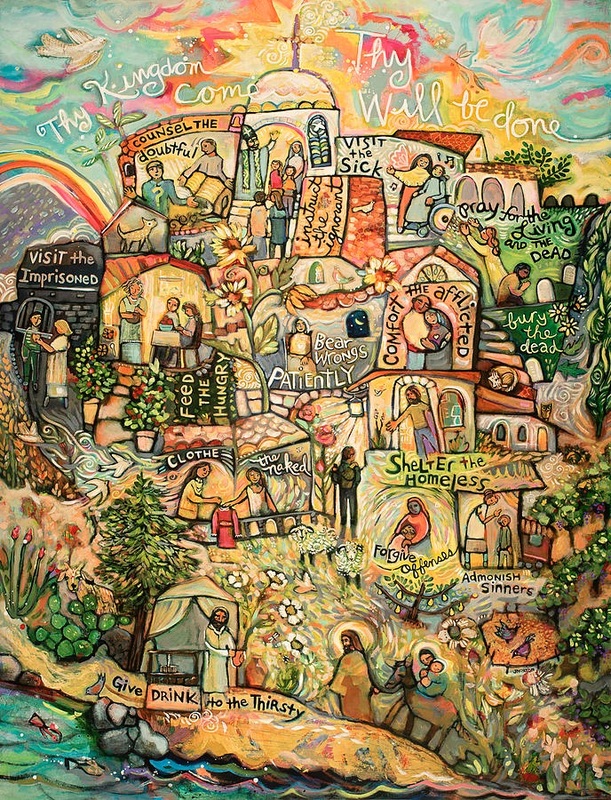“When you pray, don’t pour out a flood of empty words, as the Gentiles do. They think that by saying many words they’ll be heard. Don’t be like them, because your Father knows what you need before you ask. Pray like this:
Our Father who is in heaven,
uphold the holiness of your name.
Bring in your kingdom
so that your will is done on earth as it’s done in heaven.
Give us the bread we need for today.
Forgive us for the ways we have wronged you,
just as we also forgive those who have wronged us.
And don’t lead us into temptation,
but rescue us from the evil one.
“If you forgive others their sins, your heavenly Father will also forgive you. But if you don’t forgive others, neither will your Father forgive your sins.
Acts 2:42-47 (Common English Bible)
The believers devoted themselves to the apostles’ teaching, to the community, to their shared meals, and to their prayers. A sense of awe came over everyone. God performed many wonders and signs through the apostles. All the believers were united and shared everything. They would sell pieces of property and possessions and distribute the proceeds to everyone who needed them. Every day, they met together in the temple and ate in their homes. They shared food with gladness and simplicity. They praised God and demonstrated God’s goodness to everyone. The Lord added daily to the community those who were being saved.
REFLECTION: One of the most interesting parts of our tour throughout Jordan and Jerusalem last January, were the number of cities we actually got to visit. While our itinerary said we would visit 8 cities, or something to that effect, I would gather that we visited more like 15-20. How, you might ask? Not only were we visiting the modern day city of Jerusalem, but we were also visiting the 3 or 4 or 5, or maybe even 6 layers of city that lay underneath and shed light on who we are as a civilization.
Some Greeks had a notion that there were layers of humanity: The Golden Age, the Silver Age, the Bronze Age, the Heroic Age and the Iron Ages. Some said that these ages were descending, getting progressively worse. Other Romans had a notion that humanity was progressing through world powers: the Assyrians, the Medes, the Persians, the Macedonians and the Romans. These were ascending, with Rome as the climax. And then we have Jerusalem, who may have held fast to ascending humanity, or to descending civilizations, but nonetheless, provides evidence that there are certainly layers of the human experience.
Regardless of the civilization or the culture, Greek, Roman, Jewish.... We can see that for thousands of years we, as human beings, have been operating on this "layer" system in which we see different levels of our human experience. So when we hear the words, "Thy Kingdom come," it is hard not to think of God's kingdom as the ultimate layer of existence.
Is God's kingdom the very top? Do we get to see God's kingdom at the very end? Or is God's kingdom at the very bottom, the very foundation upon which we are building, but perhaps covering up? Are we waiting for God's kingdom to come at some future point and time, or could God's kingdom come right here and now, in our own lifetime? We pray each and every week, "Your kingdom come," but how does God's kingdom come? We pray each and every week, "Your will be done," but how is God's will done?
Join us this Sunday as we discuss more about the Lord's Prayer and the foundations of the church, as we focus on the second phrase, "Thy kingdom come, Thy will be done, on earth as it is in heaven."
Our faith community simply isn't the same without everyone in our community present - so we hope you will join us!


 RSS Feed
RSS Feed



